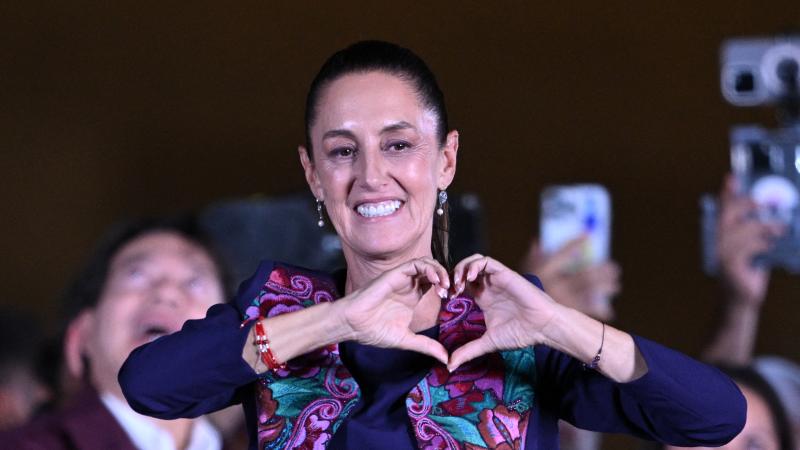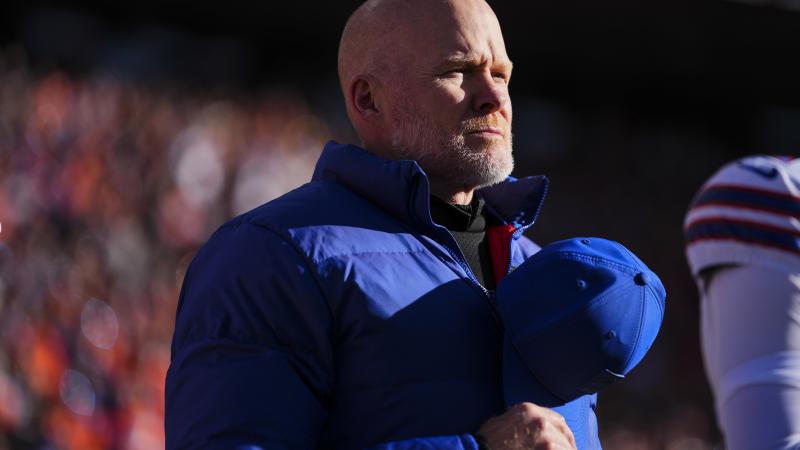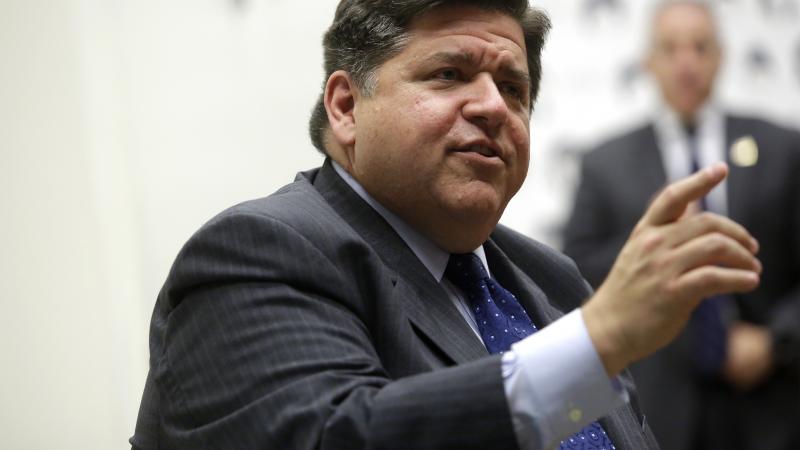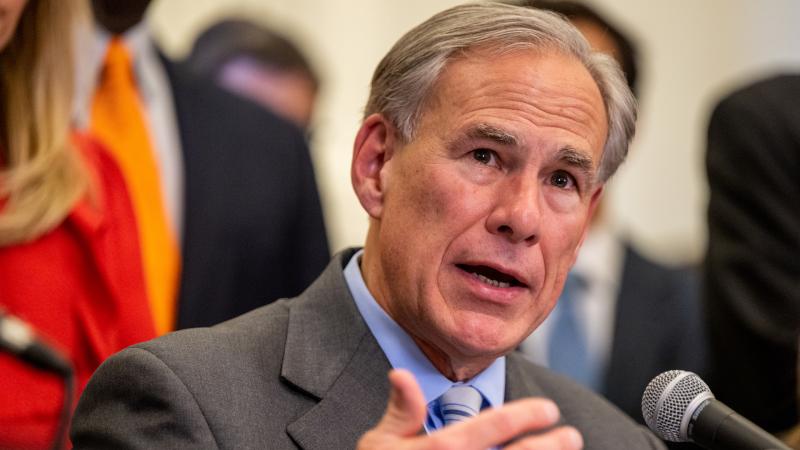Reports say corporations retreated from net zero, but critics say ESG policies still enforced
Blacklisted: The Hartford Underwriters Insurance Company notified the American Energy Institute it wouldn't be renewing the pro-oil group's insurance due to it "promoting social/political causes related to energy production."
Shortly before President Donald Trump was inaugurated in January, the Net Zero Asset Managers (NZAM) initiative announced it was suspending its activities. The announcement came after the investment firm Blackrock said it was withdrawing, joining an exodus of firms from the group. That month, six of the largest U.S. banks also left a similar group for banks, the Net-Zero Banking Alliance (NZBA).
Critics had called NZAM and NZBA “cartels,” and firms were facing Congressional investigations and lawsuits, arguing their activities violated anti-trust laws. By coordinating an effort to harm politically unfavored companies, the lawsuits argued, they were engaging in illegal collusion, accusations the firms say are baseless.
However, with litigation risks mounting, the firms fled NZAM and NZAB. Blackrock, the world’s largest asset management company with $11.6 trillion in assets under management, said in a statement that its “memberships in some of these organizations have caused confusion regarding BlackRock’s practices and subjected us to legal inquiries from various public officials.”
Not really the end of ESG
The environment, social and governance (ESG) sustainable investing movement recently appeared to be nearing its end. However, that may not be the case, at least for some companies. The American Energy Institute (AEI), which defends the production of petroleum as a means of reliable and affordable energy, was recently notified its insurance wouldn’t be renewed.
According to AEI, the Hartford Underwriters Insurance Company reportedly stated the reason for the non-renewal was that the group’s Facebook page indicated that their operations “include trade associations involved in promoting social/political causes related to energy production. This is not an acceptable exposure under the Hartford Small Commercial business segment’s guidelines.”
“They're really not changing their behaviors whatsoever. They're just dropping some alliances and probably saving a few bucks on dues,” Jason Isaac, executive director of the AEI told Just the News.
The Hartford didn’t respond to Just the News' questions about its decision not to renew AEI’s insurance or what policies the AEI was violating.
Will Hild, executive director of Consumers’ Research, testified before the Texas Senate Committee on State Affairs last month in a hearing considering anti-ESG legislation. Hild argued that even though banks have left net-zero alliances, they continue to advance policies aimed at getting companies to reduce their emissions.
Banks' executives maintain net-zero alliances
“Banks that continue to use tools like these, in combination with net-zero targets, will inevitably have to discriminate based on emissions, especially in energy and agriculture sectors. This is especially true given that net-zero pathways and goals are becoming ever more impossible to meet,” Hild told the committee.
He said that many executives at major banking institutions remain members of the Glasgow Financial Alliance for Net Zero (GFANZ) Principals Group, which approves the strategic direction of GFANZ. The Net-Zero Banking Alliance is an initiative under GFANZ, and GFANZ’s Principals Group includes Citigroup CEO Jane Fraser, Blackrock Vice Chairman Philipp Hildebrand, and Bank of America Chair and CEO Brian Moynihan.
Hild explained that banks like JPMorgan Chase and Bank of America are continuing to assess investments based on those investments’ emissions, with the goal of “minimizing climate risks” by pressuring companies to reduce their emissions.
“They're not stopping what they're doing. They're just not going to coordinate in the same way,” Hild told Just the News.
The bill the Texas legislature is considering would prohibit insurance companies from discriminating based on factors other than financial risk factors. Hild told the committee that such legislation would help insurers who are pressured from asset managers to push ESG net-zero initiatives.
“If this law passes, they will be able to say I cannot do that. That violates the law. And that will be a great defense for the people who just want to engage in insurance business as such and not play politics,” he said.
States seeking accountability and transparency
Other states are also acting on concerns that ESG initiatives are still influencing the business decisions of major firms.
The Office of the Mississippi Secretary of State on Thursday opened investigations into the nation’s largest proxy firms, Institutional Shareholder Services Inc. (ISS) and Glass Lewis. The Securities Division is looking into whether the firms are recommending votes for climate-related shareholder proposals for political rather than fiduciary reasons that enhance or protect shareholder value.
“Accountability and transparency have remained core functions of my public service tenure, and we must protect Mississippi investors from any companies who breach trust and fail to uphold stated goals of enhancing and protecting shareholder value. In Mississippi, we will hold those accountable who willingly neglect their fiduciary responsibilities,” Mississippi Secretary of State Michael Watson said in a statement. Neither ISS nor Glass Lewis responded to requests for comment on the investigation.
The Mississippi Secretary of State’s announcement notes that these firms have a combined market share exceeding 90%, which makes them a major influence over the governance and choices of many publicly traded companies. ISS alone covers 100 markets and 50,100 meetings, executes 14.1 million ballots, and serves 4,200 institutional clients, according to the office.
Smartest guys in the room
There is some indication that the engine of net-zero initiatives has been slowing. Citing anonymous sources, Bloomberg News reported in April that Morgan Stanley and JPMorgan Chase were discussing changes to their existing policies that determine who they’ll lend to. Wells Fargo was reconsidering its standing policy against lending to oil and gas projects in the Arctic National Wildlife Refuge. The bank's policies prohibited such lending since 2020.
Referring to the Bloomberg News report, Doug Sheridan, managing director of Energy Point Research, said on his LinkedIn page that “Wall Street’s embrace of the zany logic earlier this decade was a major low-point for an industry that’s had its fair share of lows over the years. [Blackrock CEO] Larry Fink’s mindless recanting of cockeyed claims about ESG comes to mind. So does [J.P. Morgan CEO] Jamie Dimon’s failed leadership as Chairman of the Business Roundtable when it embraced stakeholder capitalism. What a sorry showing for folks who are supposed to be the smartest guys in the room.”
Blackrock has also been disputing the way Consumers’ Research portrays the firm. In April, Consumers’ Research shared an article from Just the News that quoted Hild arguing that Blackrock wasn’t abandoning its ESG commitments. Blackrock Fact, a social media account on X, responded to Consumer's Research's post by posting an image indirectly saying that Consumers’ Research “posts false and misleading content about Blackrock.” BackrockFack often posts that same image as a reply to articles and statements with which they disagree.
“As one of the world’s leading asset managers, BlackRock is committed to helping our clients experience financial well-being. The money we manage is not our own. It belongs to the individuals and organizations around the world who rely on BlackRock to help them reach their long-term goals,” Blackrock says on their website.
ESG window dressing
Julia Vol, a communications professional based in Denmark, wrote a post on LinkedIn about conversations she’s had with people working in corporate sustainability and ESG functions. “Many of them feel they’re, at best, occupied with pet projects that have no real impact on the company’s core business, or, in the worst case, that they’re helping their employer greenwash through creative accounting and communications,” Vol wrote.
She explains that corporations are more and more treating sustainability as a reporting exercise and “ESG window-dressing” that no longer gets any serious commitment from the leadership. People remain in their positions despite growing disillusionment, Vol wrote.
“Most people don’t leave, and it’s easy to understand why. Corporate jobs pay well, and not everyone has the privilege to walk away from a good salary,” she said in her post.
The post received 133 comments and 956 "like" emojis as of Saturday, and many were from people working in the field and thanking Vol for advocating for it. It’s understandable people would advocate for their jobs, but a widespread sentiment that sustainability positions are just “pet projects” suggests it’s a field that might not have a future.
As investigations into firms’ activities and lawsuits wind their way through court, more information will come out about whether the era of net-zero sustainability really came to an end or just continued as it had before, sticking close to the shadows to avoid scrutiny.
The Facts Inside Our Reporter's Notebook
Documents
Links
- Net Zero Asset Managers (NZAM) initiative announced
- six of the largest U.S. banks
- Congressional investigations
- lawsuits
- $11.6 trillion in assets under management
- world’s largest asset management company
- said in a statement
- American Energy Institute
- promoting social/political causes
- Consumersâ Research
- anti-ESG legislation
- Hild told the committee
- Glasgow Financial Alliance for Net Zero
- Citigroup CEO Jane Fraser
- Blackrock Vice Chairman Philipp Hildebrand
- Bank of America Chair and CEO Brian Moynihan
- said in a statement
- Bloomberg reported
- Doug Sheridan
- Energy Point Research
- said on Linkedin
- shared an article from Just the News
- website maintained by Blackrock
- Julia Vol
- wrote a post on LinkedIn














